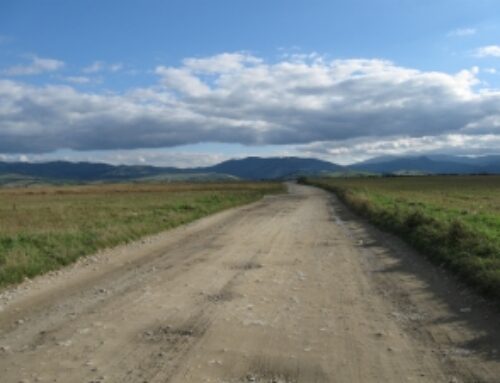Why is Zinc So Important To Your Health?
Zinc is a crucial element that plays a vital role in growth and development, the immune response, reproductive and neurological function.
The human body does not store zinc, so a person must get enough from their daily diet or take supplements. Nearly 100 enzymes require zinc for their metabolic reactions. Zinc also binds to DNA, thereby influencing the transcription of specific genes.
The bioavailability of zinc is higher in meat, eggs, and seafood because of the lack of compounds that inhibit its absorption and the existence of amino acids (ie: cysteine and methionine) that enhance its absorption.
Whole grain products and plant proteins are less bioavailable since they have a high content of phytic acid, which reduces zinc absorption. The enzymatic action of yeast decreases the level of phytic acid in foods.
Copper-Zinc Relationship
The ratio of copper to zinc is clinically more important than the concentration of either of these trace metals. Taking large amounts of zinc (50 mg/day or more) over a period of weeks can interfere with copper bioavailability. The safe, upper limit for zinc is 40mg/day for adults and 12 mg/day for children ages 4-8 years of age.
Exposure to increased copper levels whether through supplementation or contaminated water can reduce zinc levels. Iron and Calcium supplementation can also impair zinc absorption.
The symptoms of severe zinc deficiency include impaired growth and development, delayed sexual maturation, characteristic skin rashes, chronic and severe diarrhea, immune system deficiencies, impaired wound healing, diminished appetite, impaired taste sensation, night blindness, swelling and clouding of the corneas, and behavioral disturbances.
Mild zinc deficiencies are hard to identify but can be linked with poor healing, a reduced immune system, and visual disturbances.
According to a study done in Spain at the European coronavirus conference, researchers found that hospitalized COVID-19 patients with low blood levels of zinc tended to fare worse than those with healthier levels.
All patients had their blood zinc levels tested upon arrival — the average level was 61 micro grams per deciliter of blood (mcg/dL).
However, among those who died of COVID-19, blood levels of zinc were much lower, averaging just 43 mcg/dL, the researchers reported. In contrast, blood levels among those who survived the illness averaged 63 mcg/dL.
In is well known in the scientific community that mild to moderate zinc deficiency can impair macrophage functions (the Pac Men of the immune system) as well as natural killer cell (NK cell) activity.
In the functional medicine world, the best test to determine a true zinc deficiency is the RBC intracellular test
Also, look at your most recent lab test and see the level of your alkaline phosphatase. Levels of alkaline phosphatase below 70 IU/L may indicate a possible zinc deficiency.
The most absorbable form of zinc is zinc monomethionine.
Although oysters contain the most zinc per serving, most people get their zinc from poultry & red meat. Some foods are also fortified with zinc.
Foods that are high in zinc:
- Oysters, 3 ounces (oz): 74 mg
- Beef patty, 3 oz: 5.3 mg
- Alaska king crab, 3 oz: 6.5 mg
- Fortified breakfast cereal, 3/4 cup serving: 3.8 mg
- Cooked lobster, 3 oz: 3.4 mg
- Cooked pork chop loin, 3 oz: 2.9 mg
- Baked beans, 1/2 cup serving: 2.9 mg
- Dark meat chicken, 3 oz: 2.4 mg
- Other zinc sources in a person’s diet include low fat yogurt, pumpkin seeds, milk, chickpeas, instant oatmeal, almonds, and Cheddar cheese. These all contain around 1–2 mg of zinc per serving.
Examples of vegan and vegetarian friendly foods that are high in zinc include:
- Beans, nutritional yeast, nuts, oats, seeds, wheat germ
Per research, if eating a vegetarian or vegan diet, one may need to eat 50% more zinc. If taking supplemental zinc, for best absorption, avoid taking it at the same time as supplements of calcium, copper, folic acid, iron, and magnesium.
ZINC TASTE TEST
To test the extent that you may be deficient in zinc, we give you a small amount of liquid zinc to drink. Your response will probably fall into 1 of these 4 categories.
Category 1
No specific taste or other sensation is noted.
Category 2
No immediate taste is noted, but after a few seconds, a slight taste described as: “dry”, “mineral’, “furry” or “sweet” develops.
Category 3
A definite, though not strongly unpleasant taste is noted almost immediately, and intensifies with time.
Category 4
A strong and nasty taste is noted immediately.
When you understand these categories, drink the liquid sample, swish it around a few times in the mouth, then spit it into the sample cup. Which of the above categories best describes your response?
A Category 1 indicates the greatest need for supplementing with zinc. Category 4 indicates no need for supplemental zinc, just a reliable Multi-Vitamin mineral.
ZINC FACTS
Most zinc in foods is lost in processing, or never exists in substantial amounts due to nutrient-poor soil.
The American diet is generally low in Zinc (JAMA)
Zinc is essential for protein synthesis.
Zinc governs the contractibility of muscles.
Zinc helps the formation of insulin.
Zinc is important for blood stability & in maintaining the body’s acid-alkaline balance.
Zinc is important in the development of all reproductive organs including the prostate.
Studies indicate its importance in brain function including schizophrenia.
The RDA is 15 mg for adults (slightly higher for pregnant & lactating women)
Excessive sweating can cause a loss of as much as 3 mg of zinc per day.
WHAT ZINC CAN DO FOR YOU
Get rid of white spots on fingernails.
Help eliminate loss of taste.
Hep decrease cholesterol deposits.
Accelerate healing time for internal & external wounds.
Aid in the treatment of infertility.
Help avoid prostate problems
Promote growth & mental alertness.
For more information on how to get your Zinc tested call us:
Iris Rosenfeld, DC
23121 Plaza Pointe Dr Suite 150
Laguna Hills, Ca 92653
949-380-7215
[email protected] www.driris.com





